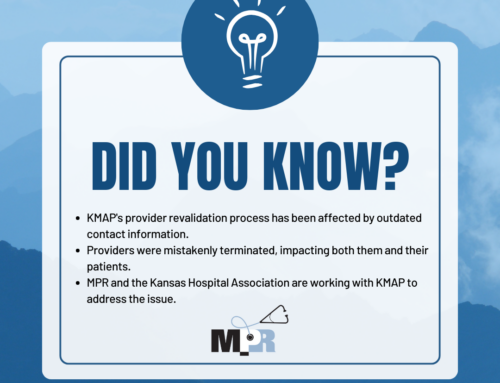Improving Patient Care Through Provider Credentialing Services
 In June of 2023, Texas lawmakers took a significant step toward safeguarding patient rights and ensuring the accountability of healthcare providers by passing a bill aimed at closing the notorious “Dr. Death” loophole. This loophole allowed a controversial physician to continue practicing despite patient safety concerns. While this legislative action was celebrated as a victory for patient advocates, recent reports have raised concerns about the practical implementation of the new law. This blog post will delve into the details of the “Dr. Death” loophole, the recent legislation, its potential challenges, and the implications for patient care in the Lone Star State.
In June of 2023, Texas lawmakers took a significant step toward safeguarding patient rights and ensuring the accountability of healthcare providers by passing a bill aimed at closing the notorious “Dr. Death” loophole. This loophole allowed a controversial physician to continue practicing despite patient safety concerns. While this legislative action was celebrated as a victory for patient advocates, recent reports have raised concerns about the practical implementation of the new law. This blog post will delve into the details of the “Dr. Death” loophole, the recent legislation, its potential challenges, and the implications for patient care in the Lone Star State.
What is the “Dr. Death” Loophole?
The “Dr. Death” loophole became infamous for enabling a physician with a questionable record to continue practicing medicine despite mounting concerns about patient safety. This alarming situation highlighted the need for stricter regulations and greater transparency in the healthcare system. Patients and their advocates demanded changes that would prioritize their well-being over the interests of physicians with problematic histories.
The New Legislation
In response to mounting pressure, Texas lawmakers passed legislation to close the “Dr. Death” loophole. The new law officially came into effect on September 1st, signaling a significant step toward improving healthcare accountability in the state. However, recent reports suggest its full implementation could take up to two years.
The Challenge of Implementation
The prolonged timeline for implementing the new law has raised concerns among patient advocates and the general public. Critics argue that this delay could potentially put patients at risk and undermine the spirit of the legislation. The Texas Medical Board, which has previously faced criticism for prioritizing physicians over patients, cited funding mechanisms as the primary reason for the extended timeline.
A spokesperson for the Texas Medical Board, Jarrett Schneider, explained, “The timeline is what is feasible under the method to fund the program using licensing fees. The board is eager to have the new NPDB CQ up and running as we believe it will be of great benefit to our licensure and enforcement programs.”
The National Practitioner Data Bank ‘Continuous Query’ (NPDB CQ) system, central to the law’s implementation, is a confidential federal database designed to provide real-time updates on physicians’ discipline records nationwide. This system would allow other state medical boards to receive alerts regarding a physician’s history, thereby improving transparency and enabling quicker action when concerns arise.
Patient Advocates’ Concerns
Patient advocates argue that the two-year timeline for full implementation is too long and could potentially lead to avoidable harm. Robert Oshel, a retired HHS employee, voiced concerns, stating, “[T]here were a lot of physicians in Texas that come from states that had taken action against them. And that’s something people in Texas ought to know about on an individual physician basis, not have to wait two years to find out.”
Conclusion
The closure of the “Dr. Death” loophole in Texas represents a significant step toward ensuring patient safety and holding healthcare providers accountable for their actions. While the new legislation is a welcome change, concerns about the extended timeline for implementation must be addressed. Patient advocates, medical boards, and lawmakers must work together to find a balance between ensuring thorough implementation and addressing immediate patient safety concerns. Ultimately, the goal is to create a healthcare system that prioritizes the well-being of patients while maintaining the integrity of medical practice in the Lone Star State.
Cases like “Dr. Death” represent why provider credentialing companies like MPR and medical provider credentialing services are key for protecting patients and healthcare organizations. Over the years, Medical Provider Resources has grown to become one of the best medical credentialing companies in the Midwest. Contact us today for a free consultation to discuss our provider enrollment and credentialing services for your company.



